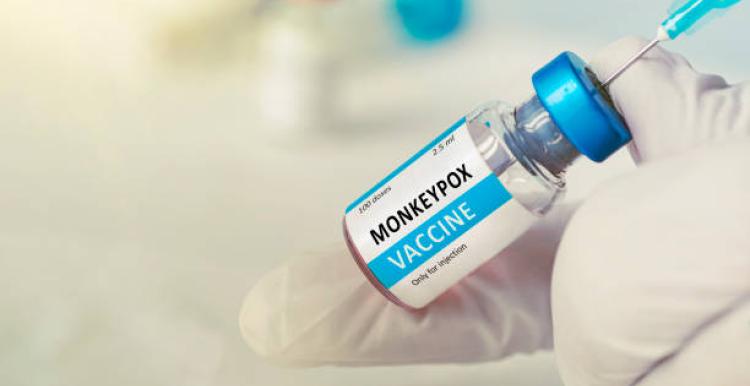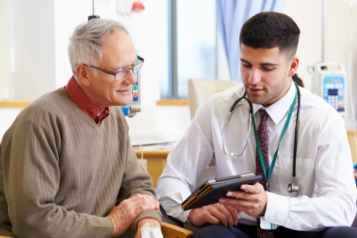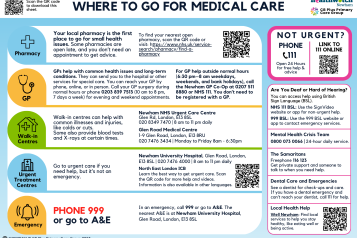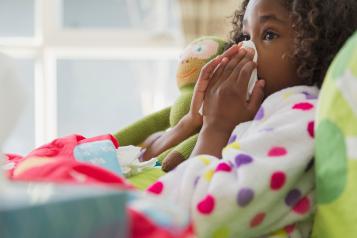Monkeypox: What is monkeypox and who can get the vaccine?

What is Monkeypox?
Monkeypox is a rare infection, the majority of the cases are most commonly found in west or central Africa. However, there has been a recent increase in the UK and other formerly unaffected regions of the world.
The risk of monkeypox is very low to the UK public, but it is highly contagious.
How can it spread?
Close contact with an infected person, infected animal, or item contaminated with the virus can result in the spread of monkeypox.
Through person to person:
- any close physical contact with blisters or scabs
- during sexual contact, kissing, cuddling or holding hands with someone who has Monkeypox
- touching clothing, bedding or towels used by someone with Monkeypox
- close proximity to coughs or sneeze by someone with Monkeypox
The virus can enter the body through respiratory openings (mouth,nose, eyes) or skin lesions (small blisters filled with fluid). Although close physical contact is a known risk factor for transmission, it is not known at this time whether monkeypox can particularly spread through sexual intercourse, more research is needed to better understand the risk.
Through animal to person:
- bitten by an infected animal
- touch the fur, skin, blood, body fluids, spots, blisters or scabs of an infected animal
- eat the meat of an infected animal
Animals in the UK have not been found to have monkeypox, however there is possibility that mice, squirrels and rodents to be the host of zoonotic transmission in west or central parts of Africa.
Symptoms
A rash usually appears 1 to 5 days after the first symptoms.
Beginning signs of the illness:
- fever
- headache
- muscle aches
- backache
- joint pain
- swollen glands
- shivering
- tiredness
The rash starts as raised spots, which turn into lesions. These blisters eventually form scabs which later fall off. The rash often appears on the face, then spreads to other parts of the body, such as the mouth, genitals and anus.
Look out for the visible signs of monkeypox, please click here.
Who is at risk?
Anyone can be infected with monkeypox. Most current cases in the UK have been men who are gay, bisexual, or have sex with men. It is advised to be aware of the symptoms if you are part of those groups.
Groups who are likely to have exposure to the illness:
- Healthcare workers
- Men who have sex with men (including gay and bisexual people)
- Sex workers
Monkeypox is usually mild and most people recover within a few weeks without treatment. But, if symptoms are more severe and the person infected becomes seriously unwell, they need to be treated in the hospital immediately.
Vulnerable groups who can be at risk to adverse symptoms:
- Immunocompromised
- Older people
- Pregnant people
- Young children
If you think you or someone you know have monkeypox symptoms (even if not severe) you should immediately contact NHS 111 or your local sexual health clinic.
You can find your local free sexual health clinic online or by calling Barts NHS Sexual Health Services at 0207 377 7307.
Vaccination to protect against monkeypox
Smallpox vaccine (MVA) can offer protection to monkeypox and control the outbreaks of the disease.
The Joint Committee on Vaccination and Immunisation (JCVI) has recommended using the MVA vaccine more widely in those at risk to help also reduce spread of the infection.
There is a limited supply of the MVA vaccine, so priority will be given to those indentified at high risk and exposure. As more vaccine supplies become available, more people will be offered the first dose of the vaccine.
The UK Health Security Agency (UKHSA) currently recommends that MVA is offered to:
-
Healthcare workers who are caring for and who are due to start caring for a patient with confirmed monkeypox, this includes staff in sexual health clinics - 2 doses are required
-
Gay, bisexual men or men who have sex with men (including cismen, transmen, people who were male-assigned at birth) are at highest risk of exposure.
-
People who have already had close contact with a patient with confirmed monkeypox - vaccination with a single dose of vaccine should be offered as soon as possible
The MVA vaccine is being offered in some specialist sexual health clinics and for healthcare workers from their employer.
If you identify with the groups above, you can book your vaccine through your GP or local clinic.
Further information and guidance about monkeypox
For more information about monkeypox or find the support you need, you can do so by visiting the following sites:
Newham Public Health
https://www.newham.gov.uk/health-adult-social-care/monkeypox-information-guidance
NHS
https://www.nhs.uk/conditions/monkeypox/
SHINE - All East Sexual Health
UK Government
https://www.gov.uk/guidance/monkeypox
World Health Organisation (WHO)


